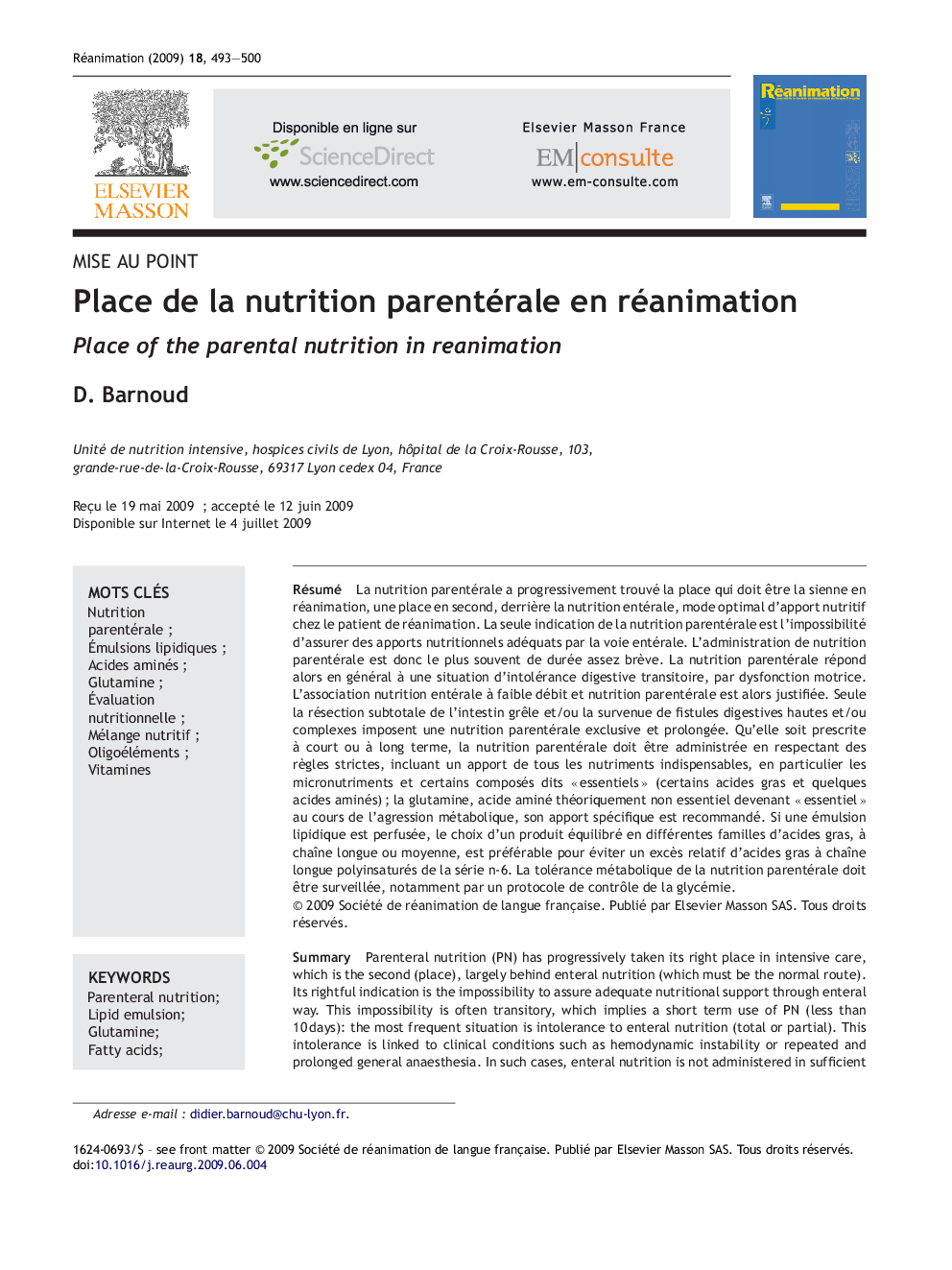| Article ID | Journal | Published Year | Pages | File Type |
|---|---|---|---|---|
| 2613613 | Réanimation | 2009 | 8 Pages |
Abstract
Parenteral nutrition (PN) has progressively taken its right place in intensive care, which is the second (place), largely behind enteral nutrition (which must be the normal route). Its rightful indication is the impossibility to assure adequate nutritional support through enteral way. This impossibility is often transitory, which implies a short term use of PN (less than 10Â days): the most frequent situation is intolerance to enteral nutrition (total or partial). This intolerance is linked to clinical conditions such as hemodynamic instability or repeated and prolonged general anaesthesia. In such cases, enteral nutrition is not administered in sufficient quantity to cover complete patient's needs and PN is thus mandatory after some days. In some cases, PN is the only suitable strategy for a long period of time, mainly after complicated gut surgery with the short bowel syndrome and/or complex gut fistulas.Whether used for short or long term, PN must follow strict rules, including balanced support with all nutrients, especialy micronutrients and essential nutrients; an amino-acid such as glutamine becomes essential in critical conditions. Balanced fatty-acids in the lipid emulsion are preferable, avoiding too large amounts of n-6 long chain fatty acid which have proinflammatory properties through eicosanoïds synthesis.
Keywords
Related Topics
Health Sciences
Medicine and Dentistry
Emergency Medicine
Authors
D. Barnoud,
